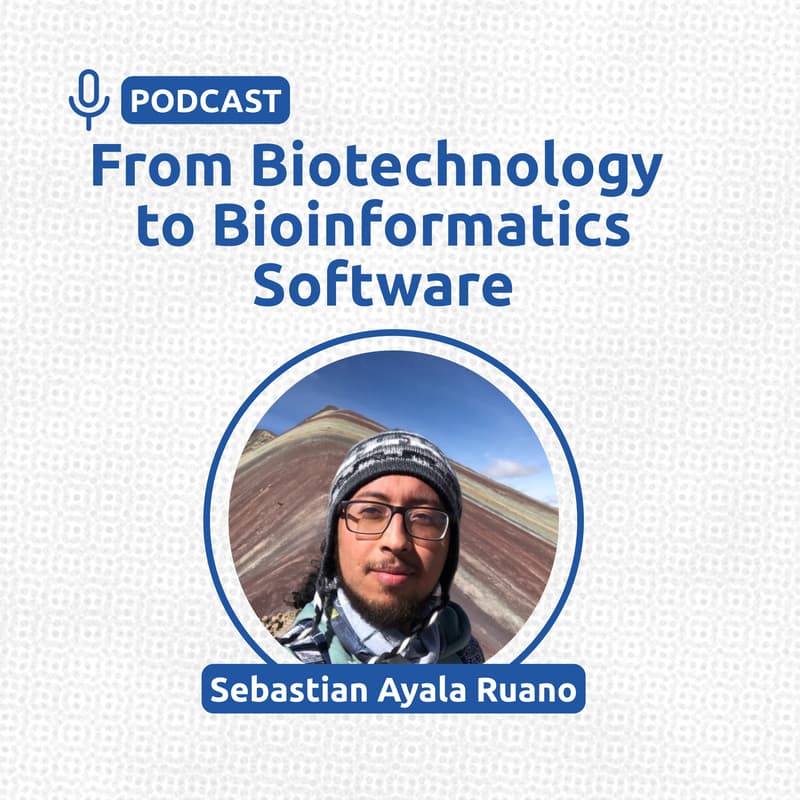

From Biotechnology to Bioinformatics Software
Developing tools to make complex biological data more accessible – Sebastian Ayala Ruano
Sebastian Ayala Ruano began his studies in Biotechnology Engineering, but soon realized the wet lab wasn’t the right environment for him. With a growing interest in programming, he pursued a minor in Software Engineering and later a Master’s degree that connected both fields.
Today, Sebastian works in bioinformatics software development, contributing to open-source projects like MicW2Graph, VueGen, and VueCore. These tools help researchers make sense of complex multi-omics data, supporting new ways of understanding biology.
We plan to cover:
Transitioning from biotechnology to computational work
Building and maintaining open-source bioinformatics tools
The challenges and opportunities of multi-omics data analysis
Advice for life science students interested in programming and bioinformatics
About the Guest
Sebastian Ayala Ruano is a bioinformatics software developer whose work bridges biotechnology and computational biology. He has contributed to open-source tools including MicW2Graph, VueGen, and VueCore, designed to simplify multi-omics data analysis for researchers. Previously, he worked on projects in cheminformatics, peptide discovery, and network-based analysis, and has developed educational bioinformatics tools for open science communities.
Sebastian is currently a research assistant in the Multiomics Network Analytics Group at DTU Biosustain in Denmark, where he focuses on integrating machine learning and network science into biological research. Also, he is an active member of several research, open-science, and software development communities (The Turing Way, Open Life Science, Streamlit Creators, ISCBSC, and The Carpentries) and led initiatives that advance Bioinformatics in Ecuador and Latin America. He shares his projects and insights through his personal website and GitHub.
DataTalks.Club is the place to talk about data. Join our slack community!